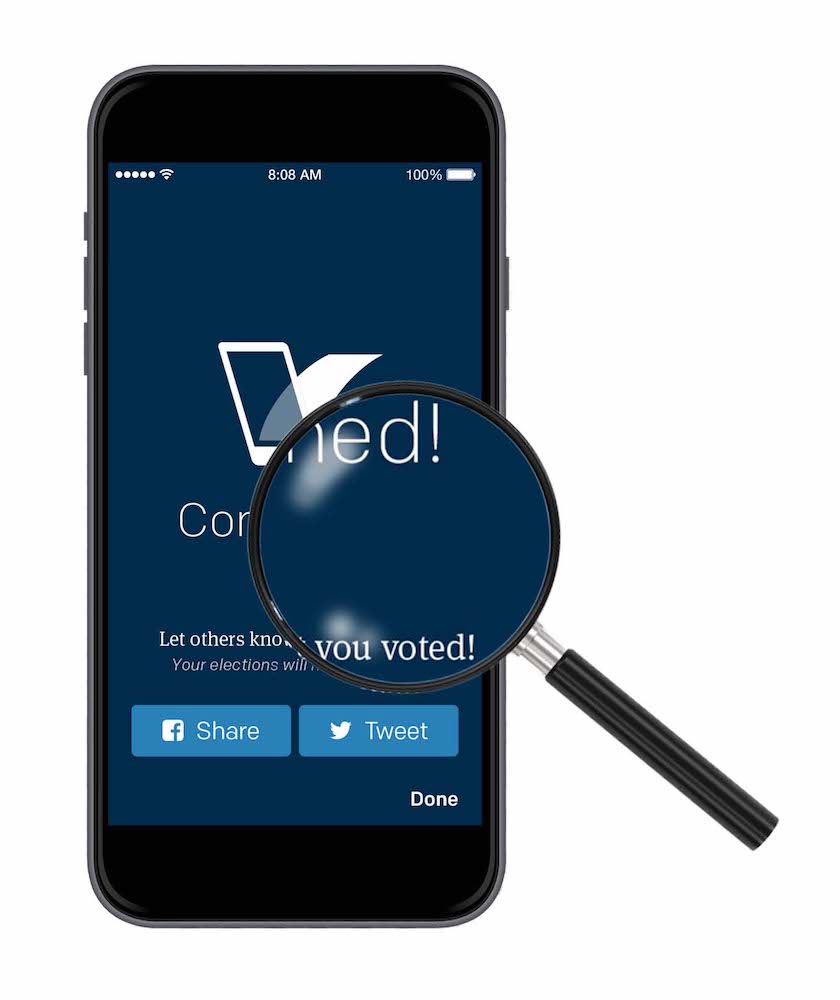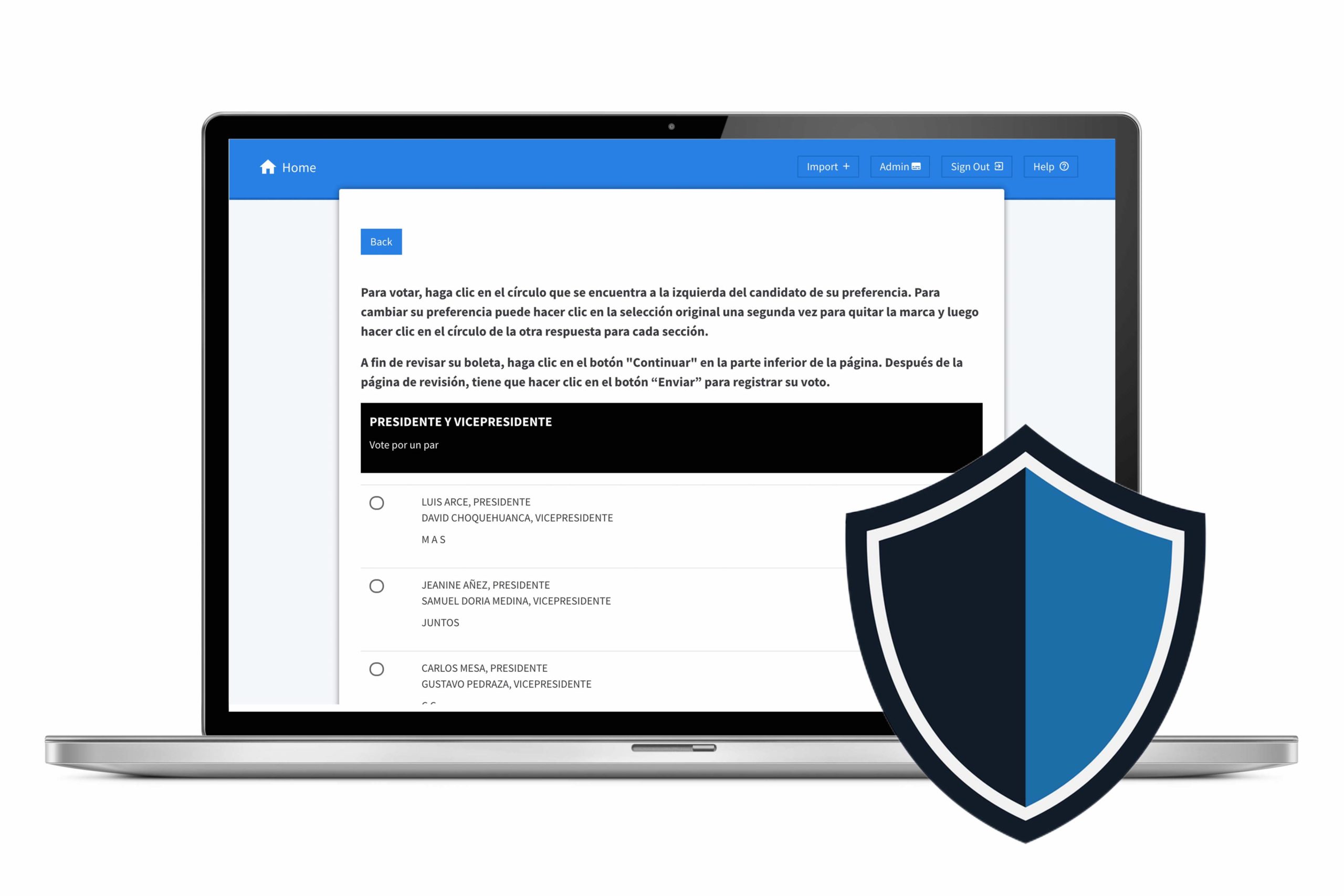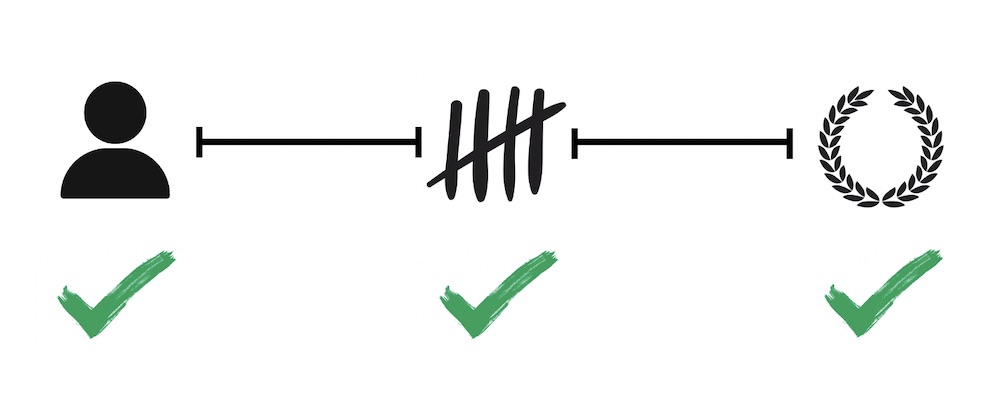No more contested elections
Verifiable, accurate, secure, and transparent.
Trust, but verify.
Blockchain voting applications specifically address one of the most difficult factors challenging electoral integrity – the trust model. Blockchain ensures trust is distributed among a set of mutually distrustful parties, all of whom are potentially adversarial, that participate in jointly managing and maintaining the cryptographically secure digital trail of the election. By distributing trust in this way, blockchains create a trustless environment whereby the amount of trust required from those participating in an election is minimized. Blockchain voting allows for every participant in the network to verify every transaction written to the digital audit trail. This is advantageous in online voting systems as it means end-to-end verification of the election happens on a rolling, ongoing basis during the election process itself.
While the use of blockchain in voting allows for ongoing verification of an in-process election, it also allows for a retrospective end-to-end verification of all election activities after the election has finished. Elections administered using Votem’s blockchain voting system could be recreated in context and verified indefinitely after the end of the election by validating the results and all signed vote transactions. Furthermore, blockchain voting means that every action that transpires, verified in real-time by the entirety of the network, is immutable once the transaction that represents that action is written to the blockchain. Every action by a voter is fully visible to the voter and to every node at any time, maximizing visibility into an ongoing election without sacrificing the voter’s anonymity. Imagine if every stakeholder in an election – every candidate, political party, the media, election observers, auditors, and the general public – could validate every vote in real-time. That’s what the CastIron platform brings to voting events.
Independently verified results
In traditional paper ballot voting, the voter must trust the poll workers and local election officials to ensure that their vote is recorded. Blockchain networks allow for multiple nodes to independently ensure that the vote is recorded.


Vote accuracy immune from compromise
In traditional paper ballot voting, the voter must trust the poll workers, and local election officials to ensure that their vote is not tampered with. Blockchain networks enforce immutability through the cryptographic integrity of Merkle trees and chained references.
Public end-to-end verifiability
In traditional paper ballot voting, the voter has no means to verify that their vote is counted in the final tally. Blockchain allows voters, as well as independent auditors, to independently verify that their vote has been collected and will be included in the final tally.
Efficacy of elections are improved as election integrity can be ensured, confidentiality of voters’ choices can be ensured, and the validity of the results can be ensured. See how our open-source, vetted Proof of Vote® Protocol lays the technological foundation for verifiable elections, accessible elections, secure, and transparent elections.

If you have any questions or comments regarding blockchain voting, online voting, internet voting, our Proof of Vote® protocol, or other election technology, we value your input and encourage you to reach out at: info@votem.com
